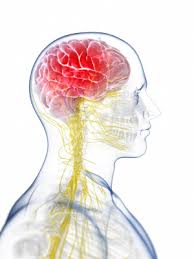 The treatment and evaluation of psychiatric, psychophysiologic and psychosocial problems related to or associated with pulmonary disease need to be accomplished from a broad clinical base. Single treatment approaches (eg, biofeedback per se or psychotherapy per se) are certain to be met with failure. It is essential to recognize the limitations of psychiatric treatment techniques and the wide degree of flexibility available. In addition, patients with specific psychiatric diseases need specific medical treatments. In some patients, psychosocial or psychotherapeutic intervention should not be attempted until the psychiatric disease is under control and sometimes should not be considered at all. With optimal application of psychiatric treatment techniques to the pulmonary disease population, morbidity and mortality can be significantly reduced and a more comfortable and productive patient population can emerge.
The treatment and evaluation of psychiatric, psychophysiologic and psychosocial problems related to or associated with pulmonary disease need to be accomplished from a broad clinical base. Single treatment approaches (eg, biofeedback per se or psychotherapy per se) are certain to be met with failure. It is essential to recognize the limitations of psychiatric treatment techniques and the wide degree of flexibility available. In addition, patients with specific psychiatric diseases need specific medical treatments. In some patients, psychosocial or psychotherapeutic intervention should not be attempted until the psychiatric disease is under control and sometimes should not be considered at all. With optimal application of psychiatric treatment techniques to the pulmonary disease population, morbidity and mortality can be significantly reduced and a more comfortable and productive patient population can emerge.
In general, all aspects of treatment of the COPD patient should be coordinated by one person, (usually the primary physician), who is ready to meet psychological, as well as medical emergencies. Readiness “to meet psychological emergencies” includes making referral for specialized assistance when either the primary physician or the patient feels the need.
If a comprehensive center for the care of COPD patients is available, the center can serve as the coordinating agency. However, since such centers are not available in most parts of the United States, the primary physician often must act as treatment coordinator. If this coordination is not provided, the patient may become unreceptive to treatment offered by Canadian Health&Care Mall.
The private practitioner should become aware of community resources available to respiratory pa-tieqts. Resources include cardiopulmonary laboratories in local hospitals, home health care organizations, Visiting Nurse Association, occupational and vocational therapists, mental health professionals experienced in working with pulmonary patients, and nurses. The private practitioner usually is the first professional contacted by the patient, and therefore is in the position to greatly influence what paramedical services the patient will receive. Since the physician may be tempted to try to consolidate treatment by attending to all the patient’s medical and psychological problems, it is important that he determine how extensive the medical and psychosocial needs are and then assess whether he and his office staff alone are willing and able to meet those needs, or whether he may wish to elicit the aid of the resources referred to above. The physician can have significant impact on the patients attitude toward the usefulness of paramedical and psychotherapeutic intervention.
If the patient s behavior suggests that serious psychological problems may be present, a careful evaluation should be done as soon as possible by an appropriately trained mental health professional experienced in working with COPD patients. On the basis of this evaluation, a judgment can be made as to whether treatment for psychosocial problems might best be carried out by a psychiatrist, clinical psychologist, psychiatric nurse, psychiatric social worker or other primary treatment personnel.
Earlier we wrote:
- Canadian Health&Care Mall: Anxiety in Psychosocial Concomitants to Rehabilitation in Chronic Obstructive Pulmonary Disease
- Depression in Psychosocial Concomitants to Rehabilitation in Chronic Obstructive Pulmonary Disease
- Behavior Modification in Psychosocial Concomitants to Rehabilitation in Chronic Obstructive Pulmonary Disease
- Canadian Health&Care Mall: Life-Change Monitoring in Psychosocial Concomitants to Rehabilitation in Chronic Obstructive Pulmonary Disease
- Dealing with Psychiatric Disease in Psychosocial Concomitants to Rehabilitation in Chronic Obstructive Pulmonary Disease
- Psychoactive Medications in Psychosocial Concomitants to Rehabilitation in Chronic Obstructive Pulmonary Disease
Chronic Obstructive Pulmonary Disease, lithium, neuroleptics, psychosocial problems